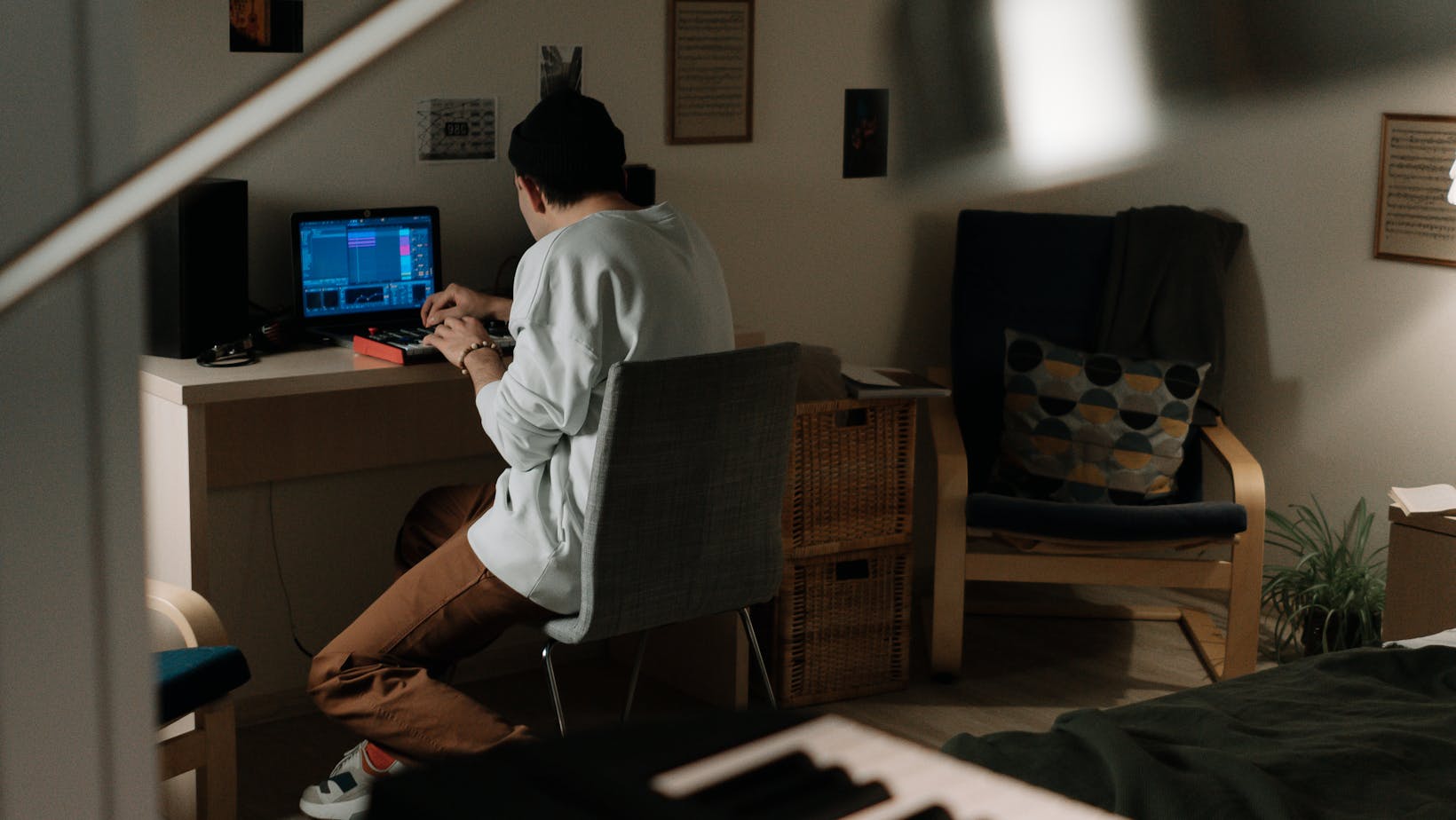Diving into the world of music production can be an exhilarating journey, but it’s natural to wonder how long does it take to learn music production. The truth is, the timeline varies for different individuals, depending on factors like existing musical knowledge, dedication, and the complexity of the genre they’re pursuing.
How Long Does It Take To Learn Music Production
 Integrating a variety of factors plays into how long does it take to learn music production. From the individual’s musical background to the specificity of their production goals, every element shapes the timeline.
Integrating a variety of factors plays into how long does it take to learn music production. From the individual’s musical background to the specificity of their production goals, every element shapes the timeline.
Understanding the role of one’s musical background in learning music production is paramount. For individuals with prior experience in music, encompassing knowledge of instruments or a solid grasp on the fundamentals of music theory, familiar traits, like recognizing patterns or predicting notes, translate beneficially to learning music production.
Defining Your Music Production Goals
Pinpointing precise production goals significantly influences the time invested in mastering music production. Ambitious projects, such as producing a complex electronic dance music track, require more time and effort compared to creating a simple acoustic cover. For example, producing techno music demands knowledge of synthesizers, beat matching, and studio effects, which adds to the complexity and thus, increases the time commitment.
Factors That Influence the Learning Curve
The Complexity of Music Production Software
Base level understanding of music production allows for faster comprehension of the technicalities involved in creating high-quality audio tracks. However, the complexity of music production software can either accelerate or slow down the learning process. For instance, simple software like GarageBand, suitable for beginners and hobbyists, presents fewer challenges compared to advanced systems like Ableton Live or Logic Pro X.
Access to Learning Resources and Equipment
 Alongside the software, access to resources and equipment greatly impacts the learning experience. It’s crucial to have sufficient tutorials, guides, and hands-on exercises, which boost the learning process by providing a practical approach to theory. Equipment, such as MIDI controllers and studio monitors, are just as critical. Owning high-end gear doesn’t guarantee expertise, but having access to these devices can prepare an individual to work in a professional studio setting.
Alongside the software, access to resources and equipment greatly impacts the learning experience. It’s crucial to have sufficient tutorials, guides, and hands-on exercises, which boost the learning process by providing a practical approach to theory. Equipment, such as MIDI controllers and studio monitors, are just as critical. Owning high-end gear doesn’t guarantee expertise, but having access to these devices can prepare an individual to work in a professional studio setting.
As with any skill, the adage “practice makes perfect” holds for music production as well. Regular and consistent practice aids in the cementing of new knowledge. This consistency, especially when fine-tuning intricate details, plays a critical part in mastering the art of music production quicker. For instance, spending 30 minutes daily on sound mixing practices gives a higher yield, rather than engaging in occasional marathon sessions. Consistency aids not only in knowledge retention, but also in honing and refining skills over time.
Setting Realistic Expectations for Progress
The Role of Talent and Prior Experience
Clearly, talent in music and previous experience can accelerate the learning process in music production. For instance, individuals proficient in playing a musical instrument might exhibit quicker understanding of music theory and sound design. Thus, a professional guitarist’s experience may simplify the process of learning melody composition, chord progression, and song arrangement, compared to someone without instrumental knowledge.
Short-Term vs Long-Term Progress Indicators
 Moreover, distinguishing between short-term and long-term progress indicators acts as a guide in setting realistic expectations. Short-term indicators often include mastering basic functions of one’s DAW, creating simple beats, or completing a first track. These act as motivation boosters and provide gratification in the early stages of learning.
Moreover, distinguishing between short-term and long-term progress indicators acts as a guide in setting realistic expectations. Short-term indicators often include mastering basic functions of one’s DAW, creating simple beats, or completing a first track. These act as motivation boosters and provide gratification in the early stages of learning.
On the other hand, long-term progress indicators reveal deeper mastery and can span over years. These involve complex tasks such as creating unique sound designs, producing an EP (Extended Play record), or having one’s music played on radio stations.
What You Need To Know
Mastering how long does it take to learn music production isn’t a sprint, it’s a marathon. It’s about understanding one’s musical foundation, setting clear goals, and being consistent in practice. Factors like software complexity and access to resources can influence the learning curve. But remember, talent and prior experience can accelerate the process.


